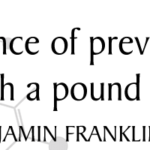Several people have asked me for my thoughts on how AI will affect procurement. Really. First, I will share what companies are doing right now to implement AI in procurement:
• Building centralized AI “governance hubs” to enforce standardized contracting playbooks.
• Running tabletop exercises for AI failure scenarios linked back to contractual remedies.
• Partnering with specialist insurers to underwrite bespoke AI liabilities.
Now I will share where I think we are headed:
==> Procurement as Strategic Risk-Manager: Buyer teams will embed legal, privacy and compliance experts directly into RFP and evaluation processes—no more “hand-off” to legal after the tech evaluation. Expect procurement to run parallel technical, legal and ethical due-diligence streams, complete with audit-rights checklists and bias-mitigation reviews. This turns your AI selection cycle into a multi-disciplinary gate process, ensuring data-use and liability terms are locked down up front.
==> Rise of AI-Native Contracting Platforms: Traditional Claims and Litigation Management tools won’t cut it. Procurement groups will demand AI-native contract management suites that natively support dynamic obligation-tracking, real-time analytics on vendor performance, automated playbooks for acceptable contract language, and proactive alerts on expiring clauses or unilateral model swaps. These platforms promise 80% faster cycle times and 30% lower admin costs—but only if buyers insist on “intelligence at the core,” not bolt-on AI modules.
==> New Liability and Warranty Models: Static, one-size-fits-all liability caps will not survive. We will see market-wide shifts toward risk-adjusted liability frameworks—tiered warranties tied to accuracy thresholds, insurance-backed indemnities for hallucinations or intellectual property claims, and performance-based service credits. Procurement will factor in “model-performance Service Level Agreements” alongside uptime and throughput commitments to align vendor incentives with real-world outcomes.
==> Emphasis on Explainability & Governance Clauses: “Black-box” AI will be a non-starter. Future RFP templates will standardize explainability obligations: documented model cards, third-party bias audits, and “right to explanation” in the event of adverse decisions. Buyers will negotiate contractual rights to source-code escrow or post-mortem forensics when things go off the rails, pushing transparency from “nice-to-have” to mandatory.
==> Agentic Procurement & Autonomous Negotiation: As procurement teams adopt their own AI agents, you’ll see semi-autonomous sourcing bots that can issue bid-requests, interpret redlines against playbooks, and even push back on non-compliant clauses—handing off only the high-stake exceptions to human negotiators. This “agentic procurement” model reduces cycle times and error-rates while ensuring consistency with your corporate risk profile.
==> Ecosystem-Driven Bundling over Point Solutions: Buyers will favor vendors offering integrated, outcome-oriented stacks—data-management, model-orchestration, human-review workflows and compliance modules under one contract. Fragmented, bolt-on AI solutions expose you to compounding legal risk and integration delays. Procurement strategies will bundle across multiple AI domains, negotiating unified Service Level Agreements to prevent “version drift” and unilateral model swaps mid-term.
==> Skill-Fusion Teams & Continuous Learning: The ideal sourcing squad will combine procurement, legal, data-science and ethics-officer roles. Continuous training on emerging AI regulation will become as routine as annual Sarbanes-Oxley and other refreshers. This ensures your team stays ahead of both vendor tactics and the evolving compliance landscape, turning contract negotiation into a competitive advantage.
Everyone in the supply chain needs to keep up with these rapidly moving developments. Your company’s future may depend upon it.
David Seidman is the principal and founder of Seidman Law Group, LLC. He serves as outside general counsel for companies, which requires him to consider a diverse range of corporate, real estate, dispute resolution and avoidance, contract drafting and negotiation, and other issues.
He can be reached at david@seidmanlawgroup.com or 312-399-7390.
This blog post is not legal advice. Please consult an experienced attorney to assist with your legal issues.
Photo credit: Matterport














